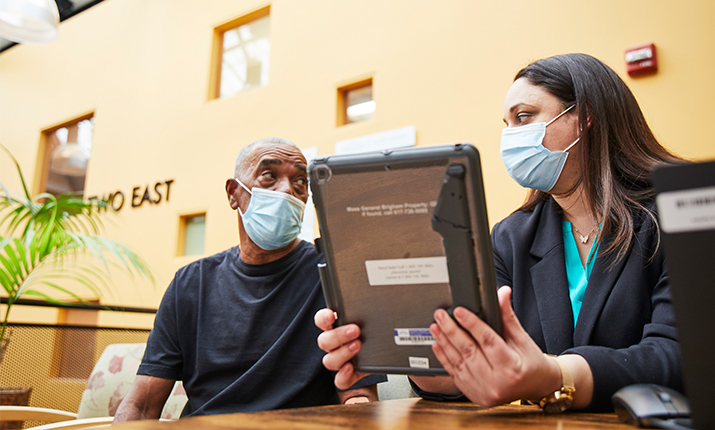Mass General Brigham launches new digital health initiatives
Mass General Brigham has launched new programs to support patients with limited access to technology and digital care. The programs, piloted this spring as part of the Mass General Brigham United Against Racism initiative, are bringing digital resources directly to patients in high-risk communities. The programs focus on a three-tiered approach—providing patients access to physical devices like tablet computers, software technologies like web access and digital tools, and digital literacy training.
The following press release was originally shared by our partners at Mass General Brigham:
"While telehealth technologies have been a surprisingly positive outcome of the pandemic, we have to be diligent about identifying and addressing inequities related to digital access. We’re trying to shape a future where everyone is supported by these advancements in care delivery," said Tom Sequist, MD, Chief Patient Experience and Equity at Mass General Brigham.
The new initiatives aim to better identify disparities, close existing gaps, and prevent future disparities from taking root. The programs will assess community needs, support the expansion of a multi-lingual tools, provide patients access to health literacy coaches, and distribute digital tablets to disadvantaged families.
Mass General Brigham has acquired over 2,000 tablets to start a loaner program for patients in primary care practices over the next few months. For patients without access to Wi-Fi in their home setting, Mass General Brigham will offer cellular enabled “hot-spot” devices for internet access.
Additionally, Patient Gateway, Mass General Brigham’s digital patient portal, is being translated into the languages most spoken by our patients. It is currently available in Spanish and Portuguese. It will also be translated into Haitian-Creole, Chinese, Arabic, and Russian.
Finally, Mass General Brigham will be embedding digital access coordinators in clinical practices to support digital literacy training for patients on-site. Coordinators will help patients sign up for Patient Gateway, distribute tablets, and train patients to be able to use virtual visit platforms. Many of the digital access coordinators have ties to the communities they serve, which offers them insight into the needs of their patients and a deeper connection to the goals of the project.
“This three-pronged approach is critical. If we were just offering tablets to patients, it wouldn’t be enough. If you hand a tablet to a patient and they don’t know how to use it and the programs aren’t in their language, that’s not breaking barriers. You have to offer the complete package,” says Lee Park, MD, Senior Medical Director for the Digital Access pilots. “These pilots impact patients in a way we haven’t focused on before. It’s been really meaningful for the teams. Mass General Brigham is really making equity a focus and meeting patients where they are—breaking down the systemic barriers that patients face to getting the same care as others.”
Media Contact
Mass General Brigham:
Bridget Perry bperry7@partners.org
